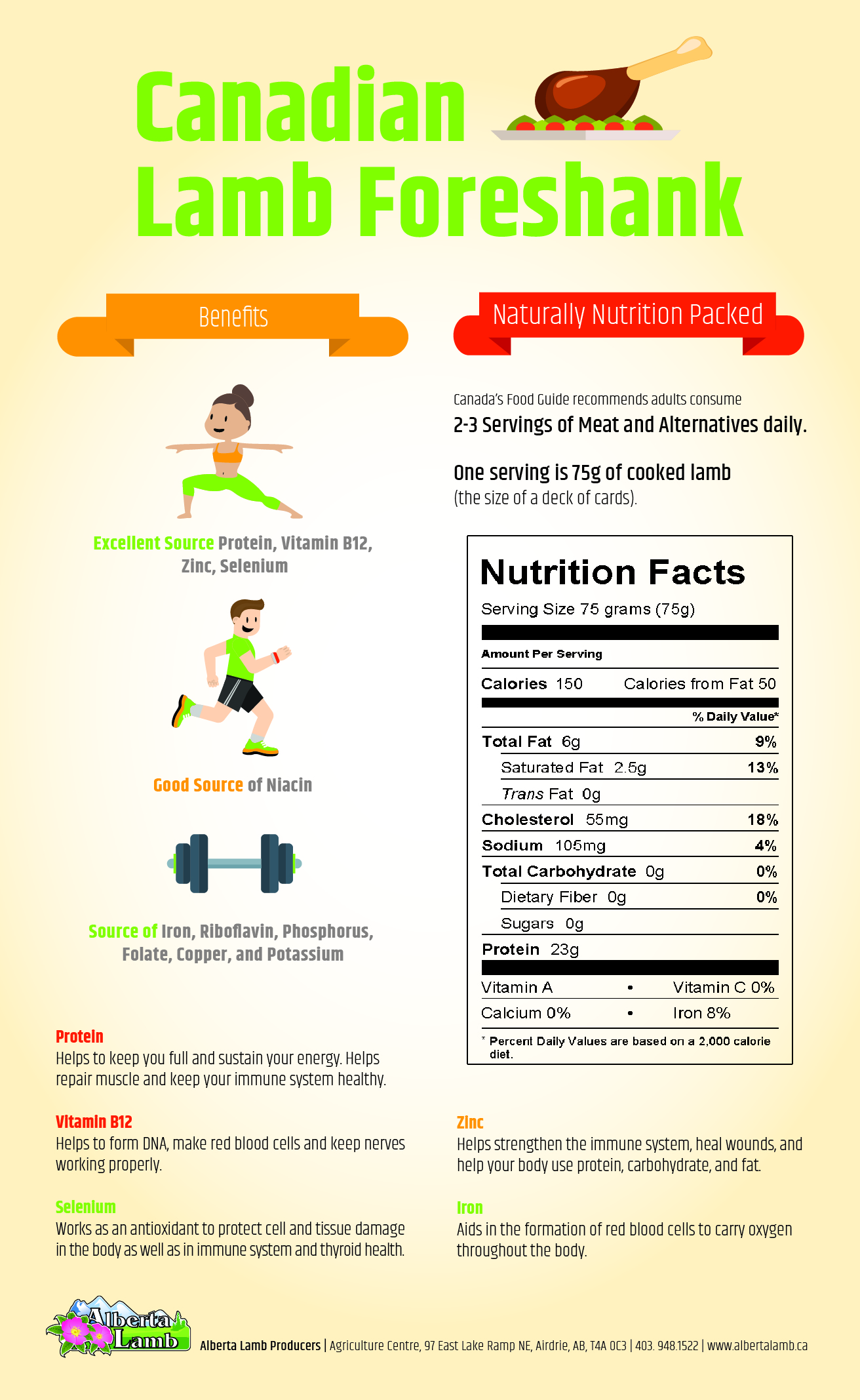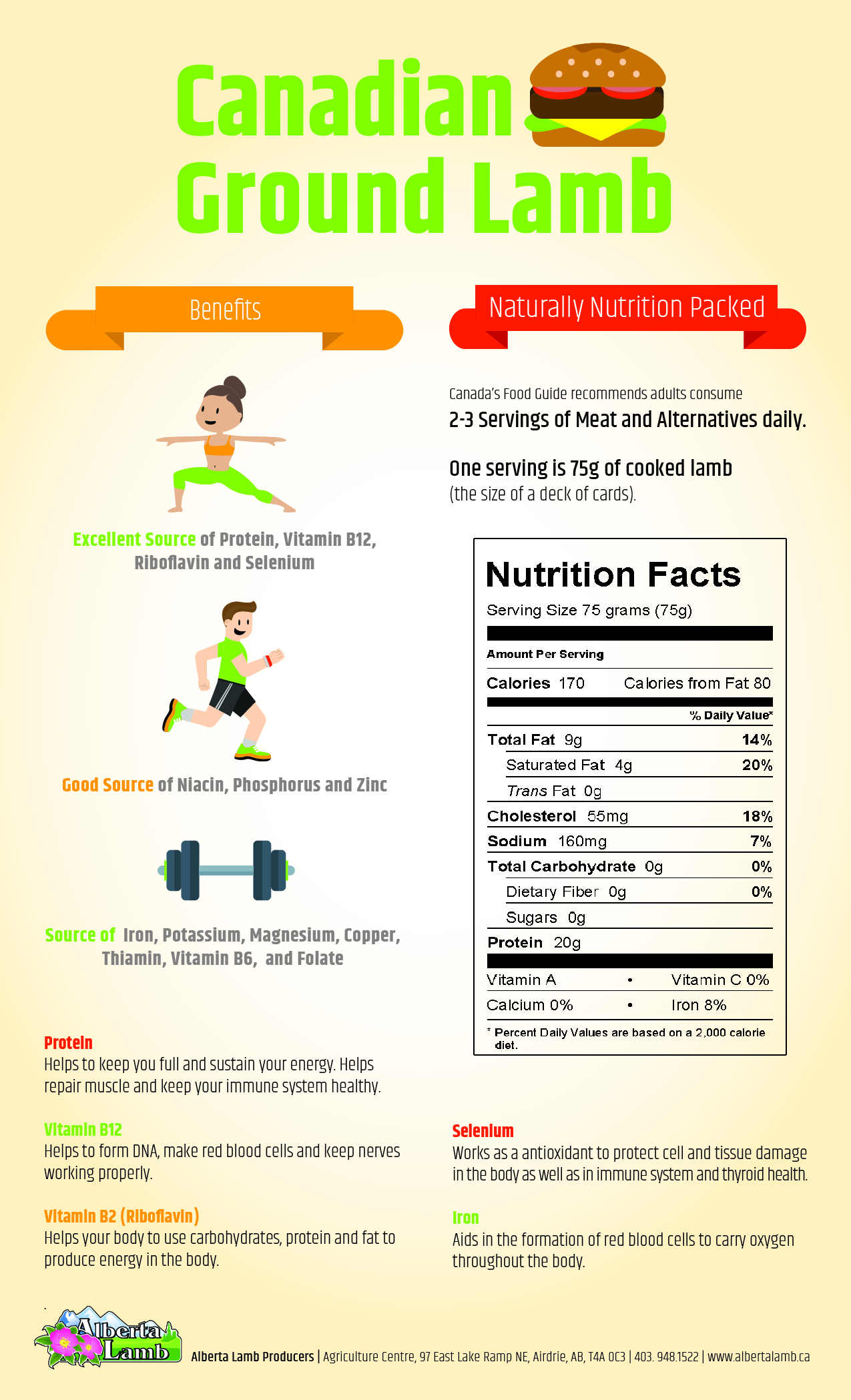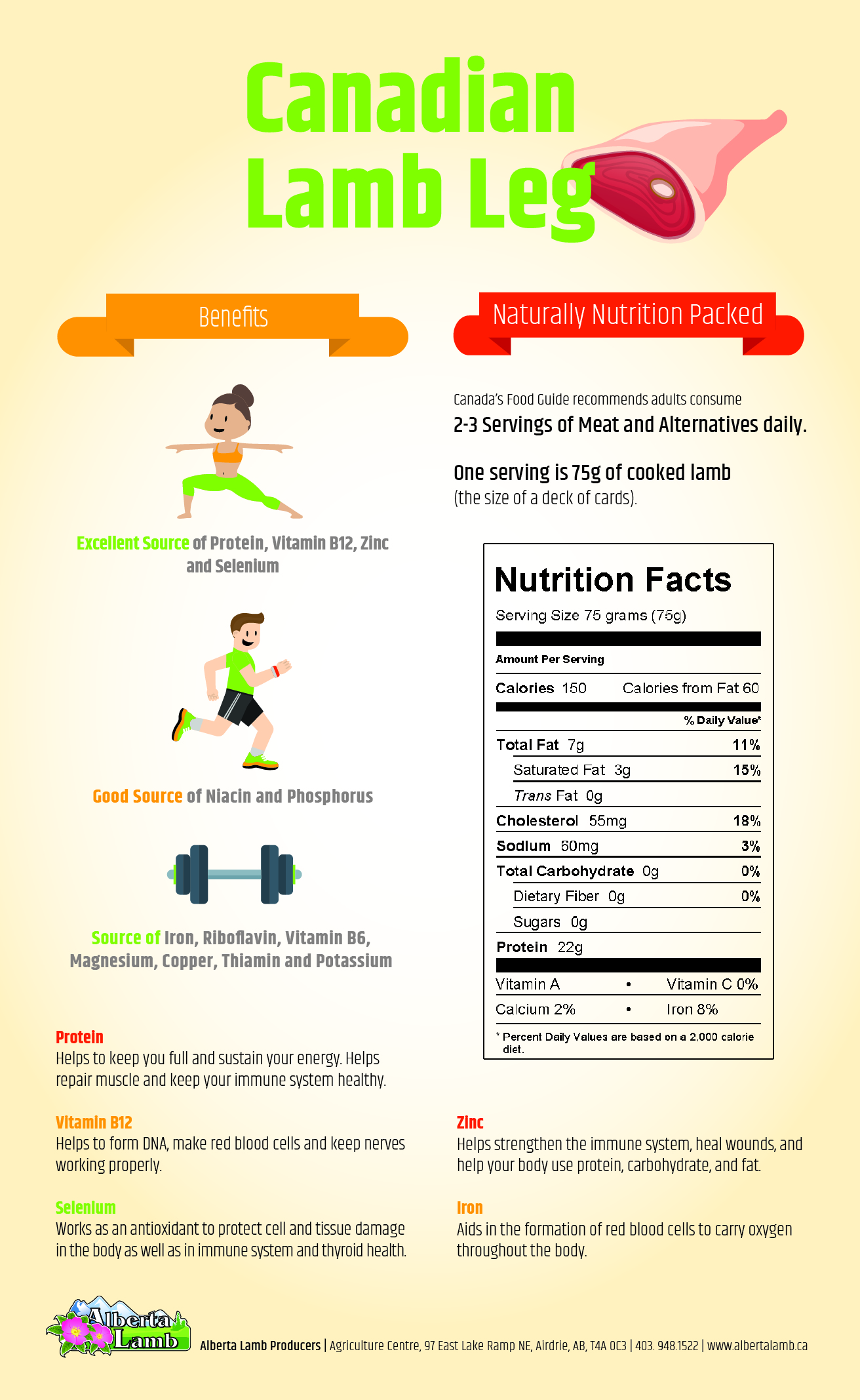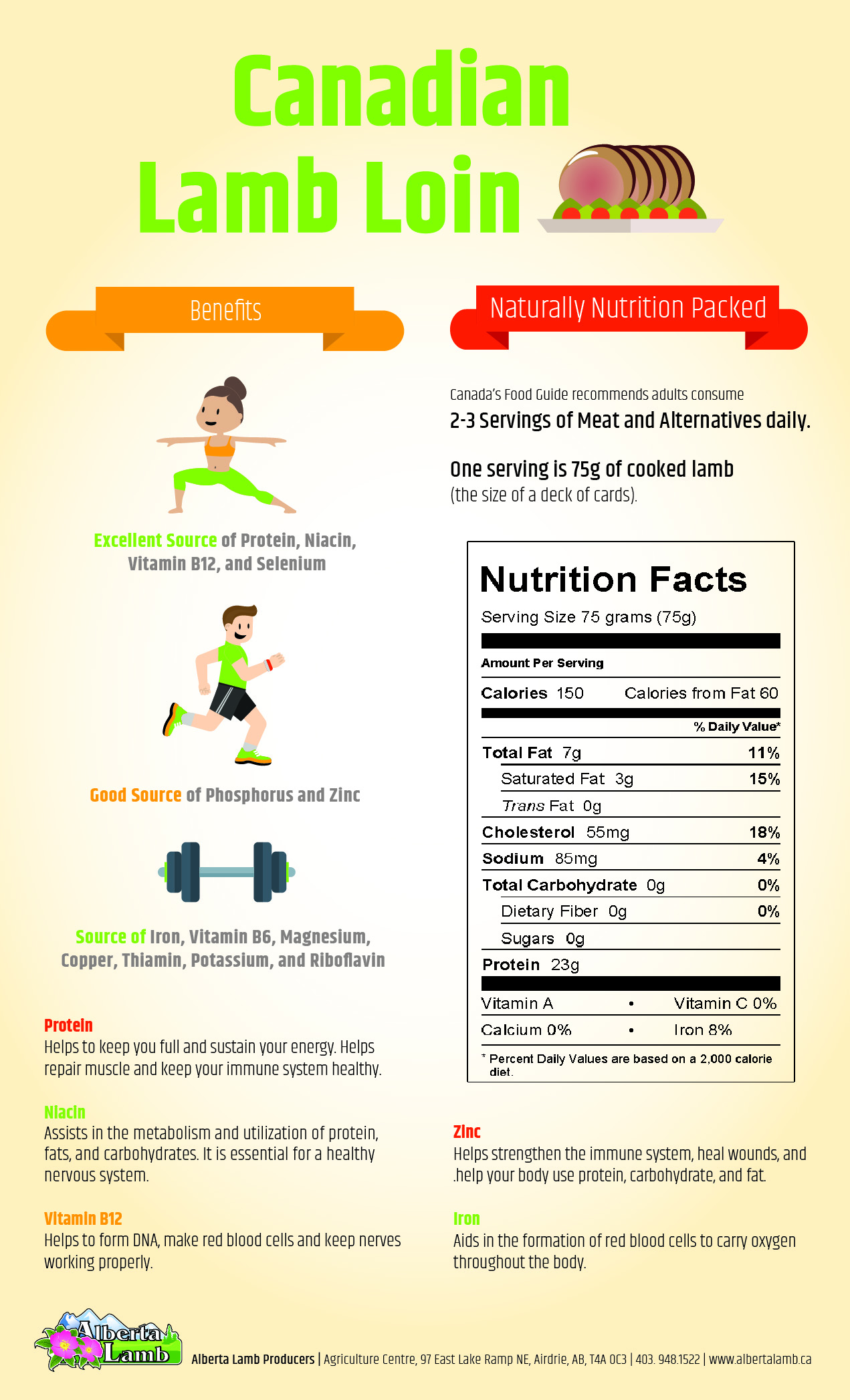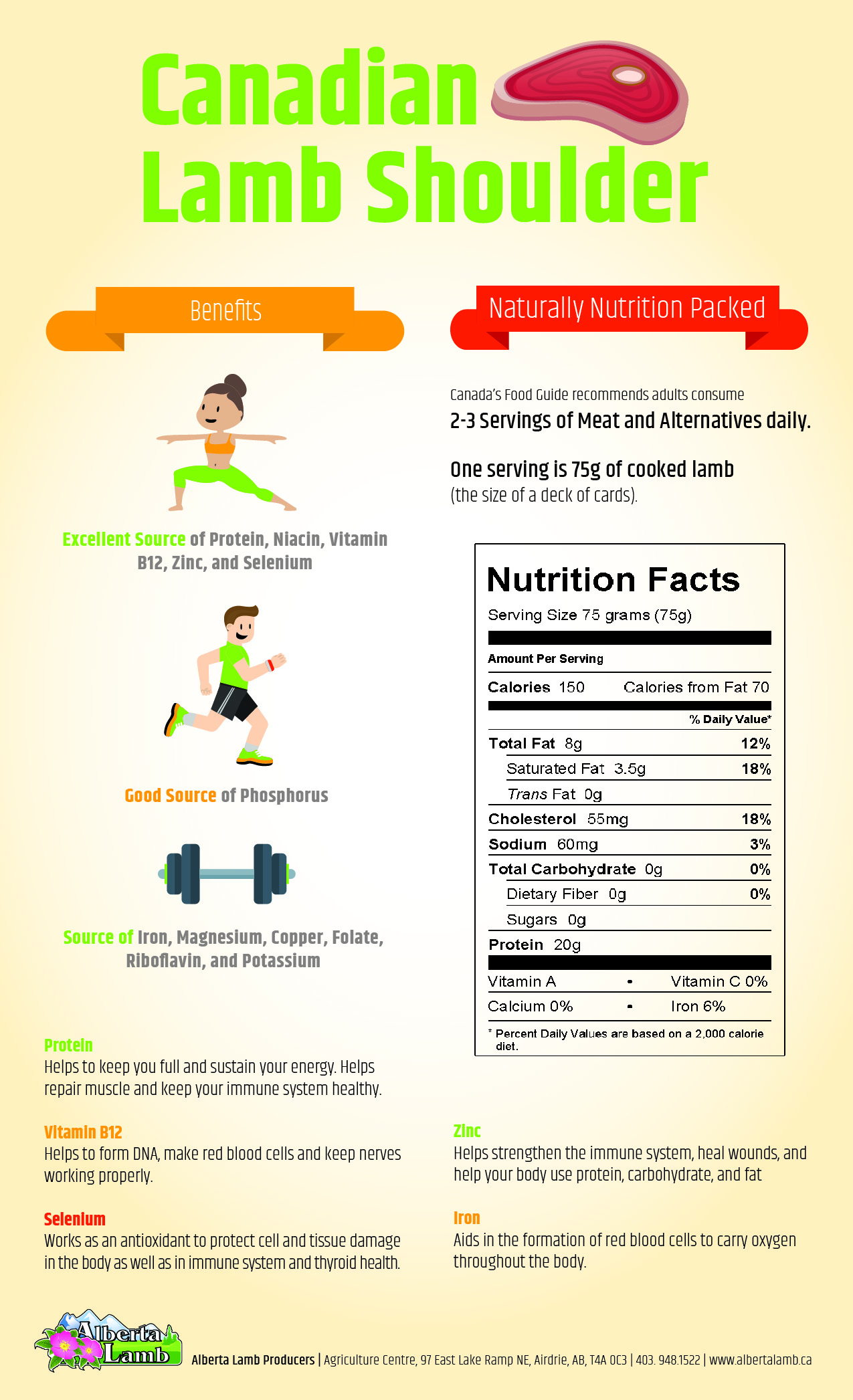How Can Something So Good, Be Good For You?
Lamb is loaded with good nutrition ideal from infancy to our older adult years. It is packed with protein to provide satiety and satisfaction, thereby helping with weight management. Lamb is one of the best sources of well-absorbed iron, as well as vitamin B12 which are both important for making red blood cells to transport oxygen in the body. Even small servings deliver abundant nutrients such as riboflavin, selenium, niacin, phosphorus, zinc and other vitamins and minerals essential for health.
Canadian lamb is loaded with protein and lean on calories. Per 75 grams (the size of a deck of cards) cooked foreshank:
<150 calories*
• A serving of lamb provides only 150 calories of a typical 2000 calorie daily diet for adults*
<6 grams fat*
• A serving of lamb provides only 6 grams of fat (9% of the Daily Value)*
Canadian lamb has 2X the iron and 6X the vitamin B12 of chicken! View this nutrition comparison chart between Canadian lamb and beef, pork, chicken, and fish/seafood (click chart to enlarge).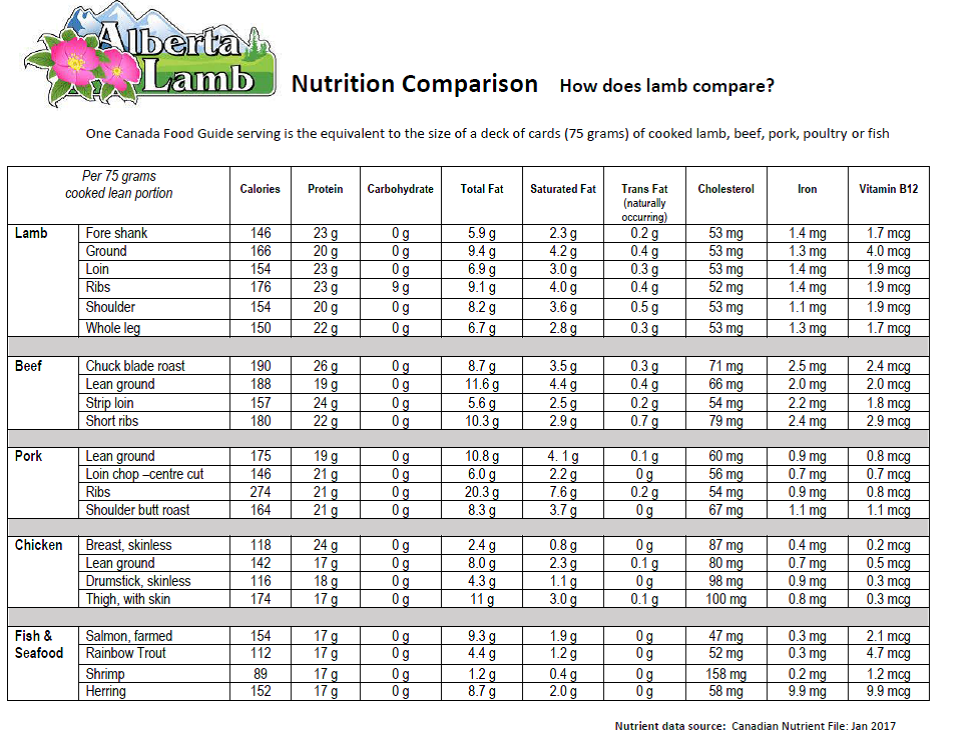
Here are the nutrition facts by cut (click image to enlarge):
Functions of Key Nutrients in Lamb
Protein: Build and repair cells, fight infection and make blood strong.
These body builders are made up of amino acids. "Complete" proteins have all 8 amino acids that the human body needs.
Vitamins: Help the body use food and work properly.
Thiamin (Vitamin B1) - is a water-soluble vitamin required for energy production and nervous system function. Because only a small amount is stored in the body, thiamin must be supplied daily. More thiamin is required for energy production when energy expenditure is increased.
Riboflavin (Vitamin B2) - is a water-soluble vitamin required for the metabolism of protein, fats, and carbohydrates. It is necessary in the maintenance of healthy skin, nails and hair. It also aids in good vision. Riboflavin must be supplied daily in the diet. Requirements are expressed in relation to energy utilized.
Niacin (Vitamin B3) - is a water-soluble vitamin that assists in the metabolism and utilization of protein, fats, and carbohydrates. It is essential for a healthy nervous system, and for the production of sex hormones. Niacin intakes are expressed as "equivalents". Tryptophan, an amino acid, can also be converted to niacin in the body. 60 mg of tryptophan yields 1 mg of niacin. Therefore, a food containing 60 milligrams of tryptophan contains the equivalent of 1 mg of niacin. Lean meats are rich sources of both niacin and tryptophan. Requirements are expressed in relation to energy.
Vitamin B6 - is a water-soluble vitamin that is required for the proper absorption of vitamin B12. It also has an important role in the metabolism and utilization of protein, fats, and carbohydrates. It is necessary for the production of antibodies and red blood cells, helps maintain the balance of sodium and potassium, and promotes the normal functioning of the nervous system. Also required for healthy skin, teeth and muscles. Dietary requirements for vitamin B6 are related to dietary protein intake.
Vitamin B12 - is a water-soluble vitamin required for the metabolism of protein, fats, and carbohydrates. It is essential for normal growth and tissue development, a healthy nervous system, and the formation of red blood cells. It also assists in many other body functions. Food sources of vitamin B12 are primarily of animal origin.
Folacin (Folic Acid) - aids in the formation of red blood cells, and is essential to the growth and reproduction of all body cells. In addition, it acts as a coenzyme with vitamin B12 and vitamin C in the metabolism and synthesis of proteins. Folacin is required for the normal development of the nervous system.
Minerals: Help repair damage and keeps your body strong and functioning optimally.
Zinc - is an essential mineral that has many roles. It is necessary for many enzyme functions, and is required for the metabolism of protein, carbohydrate, and fat. It is also important for normal immune response and general growth and development of the organs and reproductive system.
Iron - is a mineral present in every cell of the human body. Some of the many important functions of iron include the formation of red blood cells, the transport and storage of oxygen throughout the body, and DNA synthesis. Dietary iron is composed of heme and non-heme iron. The heme iron found in animal protein is more efficiently absorbed than the non-heme iron found in vegetables. Ingesting a source of vitamin C with the iron containing food enhances its absorption.
Magnesium - most of the body's supply of magnesium is contained in the bones. It is essential for many enzyme reactions and the maintenance of DNA and RNA. Magnesium also has roles in energy metabolism, and is required for the normal functioning of nerves and muscles.
